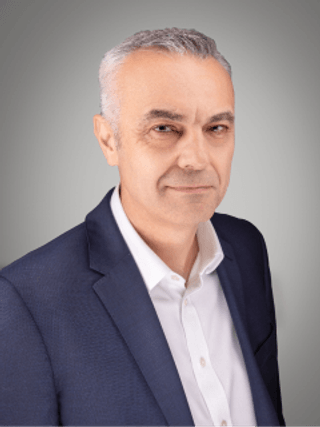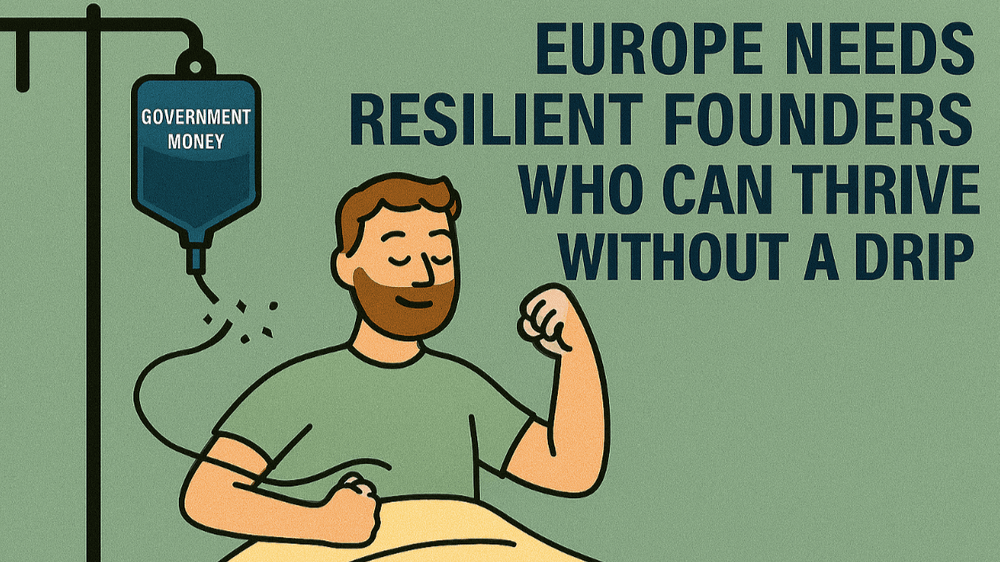Europe’s Cleantech on Life Support? It’s Time to Let Some Companies Fail
I've recorded over 155 Leaders in Cleantech episodes, and only had a small number that I didn't really rate or enjoy, but every so often, a conversation really sticks with you. My recent chat with Gregory Dewerpe, Founder of NOA Capital (formerly A/O), was one of those.
Greg doesn’t do safe answers. He’s thoughtful, sharp, and refreshingly blunt about what he thinks is working, and what isn’t, in European climate investing in particular.
And one comment in particular hit home:
“In Europe, we have companies that can tap into so much non-dilutive funding or government money that they just keep going for years. We’re enabling them to stay idle forever.”
That one sentence could probably start a fight in most policy circles. But I don't think he's wrong. I'd love to know if you agree, or otherwise!
The European Safety Net That’s Holding Us Back
Greg suggests that across the continent, too many startups are living on life support - surviving on soft loans, grants, or state-linked LP money, rather than market validation.
It comes from a good place. Governments want to support innovation, protect jobs, and accelerate the energy transition. But the result is often the opposite: we slow down innovation by keeping weak companies alive and tying up talent and capital that could be driving the next generation forward.
I’ve seen it first-hand. In my search work, I meet brilliant engineers, operators, and commercial leaders who are quietly frustrated. They’re stuck in organisations that won’t die, but also won’t grow.
And when companies don’t fail, talent doesn’t recycle. Lessons don’t get reused. Innovation doesn’t compound..
It’s a quiet drag on our whole ecosystem.
Failure, Fear, and the Cultural Gap
Greg put it perfectly: “We should stop comparing ourselves with the US. We’ll never be them - and that’s okay.”
He’s right. We don’t need to be the US. But we do need to be more comfortable with failure.
In Europe, a failed business is still a scarlet letter. In the US, it’s often a badge of honour. I’ve lived through this myself, having built, grown, and ultimately crashed a solar company years ago. It was painful, yes, but it also taught me more than any MBA could have.
That kind of learning, and the chance to apply it again, is what keeps ecosystems alive. We just make it too hard for people to bounce back.
The Talent Bottleneck
The slow failure cycles in Europe don’t just stifle capital; they stifle careers. If a company is propped up for years, it holds on to great people who could be building elsewhere.
That’s something I see often in cleantech, talented teams constrained by legacy, debt, or dependency on public funding, and chasing grants. As Greg said, “There’s nothing worse for an entrepreneur than being stuck in the wrong business forever.”
He’s right again. We need faster recycling — of people, ideas, and capital — if we’re serious about competing globally.
Smarter, Not Just Greener
What I love about NOA’s approach is that it echoes my own thoughts (is that confirmation bias?), and is rooted in realism. Greg’s mantra is simple:
“The built world doesn’t need to be greener; it needs to be smarter. Make it smarter, and it will be greener.”
That’s exactly where the climate conversation needs to go, from idealism to execution, from slogans to systems that work.
And that’s also where AI comes in. Greg’s view is that “AI has never been more physical”, that it’s the physical world (grids, buildings, infrastructure) where AI can actually do something useful. Not in yet another consumer app, but in improving how energy and resources flow through the real world. How much energy and talent is wasted generating AI slop that does nothing positive for humanity, and often harms it!
Economics, Not Altruism
As Greg said towards the end of our conversation:
“We shouldn’t build climate on altruism. Adoption happens when solutions are cheaper and more efficient.”
Climate tech wins when it makes economic sense, when the best choice for business is also the best choice for the planet. It's about building better tech that's cheaper to own and run, like an electric vehicle. Populist leaders can advocate for coal and oil as much as they want, but businesses and consumers will buy what's better and cheaper
That’s the reality founders, investors, and policymakers need to accept. Because the future won’t be built on good intentions. It’ll be built on great companies that earn their survival. And for that they need great people of course.
And to get there, we’ll need to let a few fail first.
🎧 Listen to the full conversation: 👉 Leaders in Cleantech – Gregory Dewerpe, NOA Capital On all podcast platforms and YouTube.



